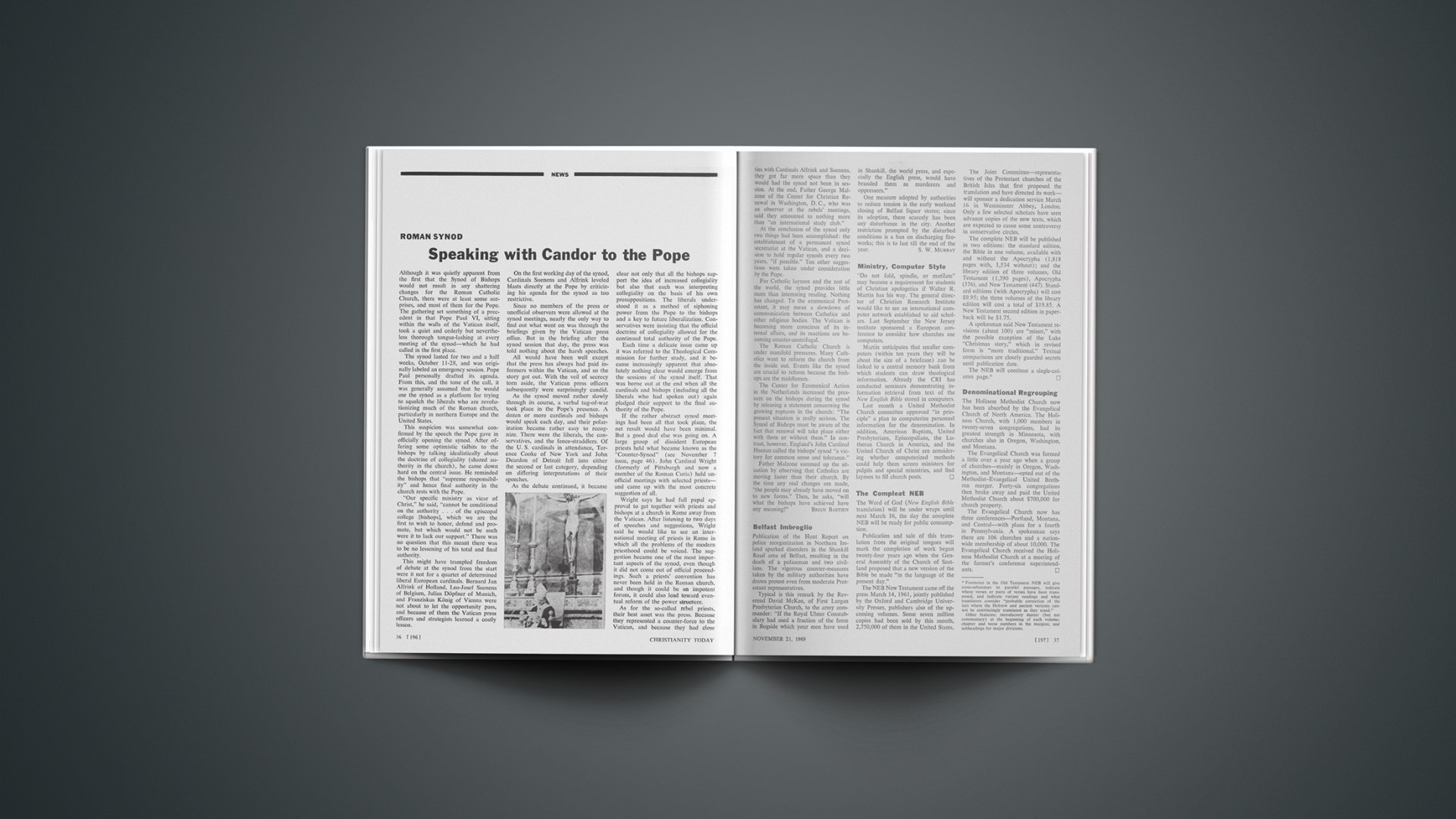The Word of God (New English Bible translation) will be under wraps until next March 16, the day the complete NEB will be ready for public consumption.
Publication and sale of this translation from the original tongues will mark the completion of work begun twenty-four years ago when the General Assembly of the Church of Scotland proposed that a new version of the Bible be made “in the language of the present day.”
The NEB New Testament came off the press March 14, 1961, jointly published by the Oxford and Cambridge University Presses, publishers also of the upcoming volumes. Some seven million copies had been sold by this month, 2,750,000 of them in the United States.
The Joint Committee—representatives of the Protestant churches of the British Isles that first proposed the translation and have directed its work—will sponsor a dedication service March 16 in Westminster Abbey, London. Only a few selected scholars have seen advance copies of the new texts, which are expected to cause some controversy in conservative circles.
The complete NEB will be published in two editions: the standard edition, the Bible in one volume, available with and without the Apocrypha (1,818 pages with, 1,534 without); and the library edition of three volumes, Old Testament (1,390 pages), Apocrypha (376), and New Testament (447). Standard editions (with Apocrypha) will cost $9.95; the three volumes of the library edition will cost a total of $19.85. A New Testament second edition in paperback will be $1.75.
A spokesman said New Testament revisions (about 100) are “minor,” with the possible exception of the Luke “Christmas story,” which in revised form is “more traditional.” Textual comparisons are closely guarded secrets until publication date.
The NEB will continue a single-column page.Footnotes in the Old Testament NEB will give cross-references to parallel passages, indicate where verses or parts of verses have been transposed, and indicate variant readings and what translators consider “probable correction of the text where the Hebrew and ancient versions cannot be convincingly translated as they stand.”










